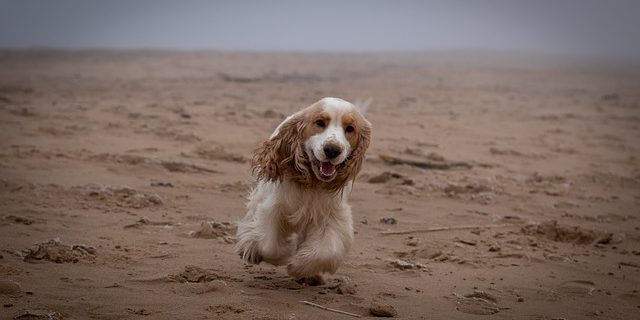Spot was a stray: part sheepdog, part terrier.
I don’t know how he got the name Spot — he was black with no markings — or how he came to live with us. Well, he didn’t actually live with us. He lived in a kennel outside.
“Please Dad,” I would plead. “Can he just stay in the back porch, just tonight because it’s raining?”
“Houses are for people, “my father would say. “We don’t bring the pony inside or the lambs, why would we bring Spot inside?”
I grew up in Ashhurst, a small village in New Zealand about 100 miles from the capital city of Wellington where my father would sometimes go on business.
One day during the August school holidays, my mother and I were going along with Dad for the ride to Wellington. We would do a little shopping, meet Dad for lunch and then visit relatives for the afternoon.
The day did not start well.
My father went to bring the car to the front door.
“We’ve had a bit of an accident,” my father said as he came back inside. “I was backing the DeSoto out of the shed and somehow Spot got behind me.”
“Spot, is he alright?” I asked.
“I’m afraid not,” my father said, wiping his glasses. “He was badly hurt.”
“Where is he?” I pleaded. “Is he lying in the kennel? I have to see him.”
Glances passed between my father and my mother. Words were not needed. I burst into tears.
“You murdered Spot.” I shouted. “I hate you.”
My father drew in his breathe and rubbed his hand on his chin.
“He didn’t feel any pain,” he said shaking his head.
I cried all the way to Wellington, about a two-hour drive. I sulked all day, refused to eat lunch or speak to my father, the murderer.
About a quarter of the way home, somewhere between Paraparumu and Otaki, my father suddenly swung the car into a driveway.
“I have to go in here for a minute to see a man about a dog.” This was an expression my father often used when I asked him where he was going and he didn’t think it was any of my business.
We drove down a long bumpy driveway with huge macrocarpa trees on either side. We pulled up outside a farmhouse. My father honked the horn and a lady came out of the barn.
“Good evening, Mr. Whitten,” she said. “We have your puppy ready for you.”
And there he was a tiny ball of white and golden fluff, a six-week-old golden cocker spaniel.
“Do you want to hold him,” the lady asked, peering in the car window and looking right at me.
I didn’t know what to say.
“Well,” said my father, shall we take him home?”
On the way to Wellington — while I was sobbing in the back of the car — my dad had spotted a sign that said “Cocker Spaniels for sale.” He phoned ahead from Wellington to make the arrangements.
The puppy’s official name was Lucky Edward Bear of Kildaire. On the drive home, as I held him gently on my lap, we discussed names. Would he be Lucky or Teddy or maybe Spot2? By the time we arrived back in Ashhurst I’d made it clear that his name was Teddy and he was my dog. Not my little brother, Graeme’s and certainly not my older brother Stuart’s.
When we got home, Teddy was made a bed in the back porch, the closest thing to living inside that any animal had ever enjoyed. I was allowed to sleep on the old porch couch next to his bed.
“Just for tonight,” my father said.
For the next couple of days, I never left Teddy’s side. I held him, I fed him, I lay on the grass beside him as took steps on his wobbly little legs, but I didn’t stop asking questions about Spot.
“How did it happen?”
“Does it hurt to die?”
“Where is he now?”
No matter what I asked, my father would say, “He didn’t suffer. He had a good life.”
Teddy was never officially allowed past the back porch, but that didn’t stop him. While my father was at work, Teddy frequently lay in the dining room and the kitchen, his big floppy ears making him look like a floor mop. Whenever he heard my father’s car pull into the driveway, he would lie down as flat as possible and slither toward the back porch.
“Hey, what are you doing in here,” my father would say if he caught him. And then Dad would wink at Mum.
Teddy loved to play rugby with me and the neighbourhood boys. He was always on my team. He’d rip the clothes of any boy on the opposite team who tried to take the ball. While my mother worried about my tomboy behaviour, my father would say, “It might not be a bad thing for her to know how to stick up for herself.”
Teddy would sometimes, but not always, fetch the newspaper from the front gate.
“It’s not important,” my father would say when Teddy failed. “I can get my own newspaper. Teddy doesn’t need to do it.”
Teddy lived for 12 years, dying after I had left home and moved to Auckland.
“Teddy has gone,” my father told me over the phone. I knew he was crying.






